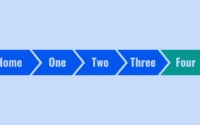Bounce Rate Is A Ranking Factor Or Not?
Different people say different things about SEO factors. It’s hard to identify truth and fiction. Bounce rate is another victim of those false information. Some people tend to believe that bounce rate is a ranking factor, while others are not. What is the true? Bounce rate is a ranking factor or not? Let’s look at it more.
I said before many people spread false information about bounce rate and also other factors. You may have read some of these false SEO advices. For example, Brian Dean of Backlinko has given SEO advices with his own “industry study.” So, what do you think does bounce rate affect for organic rankings? Bounce rate is a ranking factor or not?

The Claim of Bounce Rate is a Ranking Factor
When talking about the bounce rate when it comes to SEO, it reminds me TV spring break shows which is full of unrealistic expectations and ends up getting people’ hopes up.
What is Bounce Rate?
It is an internet marketing term which is used in web traffic analysis. Bounce rate represents the percentage of people who visit your site and then leave without continuing to view other pages on your site. This rate doesn’t say you to improve your site quality. You should design your site’s user flow to give better journey for your customers. Not to get bounce rate.
The Evidence for Bounce Rate is not a Ranking Factor
In 2008, Google’s Matt Cutts said that
“Recently a person who is related with search industry asked me some questions. He wanted to know the way that bounce rate was used at Google. So I replied ‘I don’t have any idea things like bounce rate. Why don’t you asked it from a Google Analytics evangelist who is related with things like this.’ I don’t run into people who are talking about this.”
In 2017, Google’s Gary Illyes tweeted that “bounce rate was not a good ranking signal.”

In 2020, Google’s John Mueller said that they didn’t use bounce rate as a ranking factor during a webmaster hangout. What he said was given below.
” There is a misconception that Google uses things like bounce rate to give websites ranks. But that’s not true.”
Do you still have the same question of whether bounce rate is a ranking factor or not. All these evidences say that it is not.
Bounce Rate Affect Search Rankings Or Not?
We can confirm that bounce rate doesn’t directly affect Google rankings. But it affect some other ranking factors like slow page speed, poor mobile optimization and low-quality design. When it comes time-on-page and bounce rate together, it can say whether you have created a better user experience or not. Your page is in a good place if it has high time-on-page and a low bounce rate.
Final thoughts
Bounce rate is not a ranking factor. It is just a metric and Google has said it doesn’t affect on organic rankings, again and again. But it doesn’t mean you can completely avoid it. You shouldn’t. Because this metric can be used to understand whether your content is successful or not. Getting lower bounce rate says your content is valuable and engaging. But it doesn’t help you to get better rank. Some SEO communities are still spreading false information that bounce rate is a ranking factor. Don’t get them as true.
Frequently Asked Questions
What is a good bounce rate to have?
Its good to have a bounce rate between 26% and 40%. The average bounce rate is between 26% and 70%. But the optimal range of bounce rate is between 26% and 40%. To land somewhere under bounce rate of 20% is normally unlikely. If your data shows bounce rate like that it’s better to double-check some things.
Is a 0% bounce rate good?
Logically having a high bounce rate is bad. And also having a low bounce rate is good. But that’s not always be truth. Because 0% or a very low -single digit bounce rate can could indicate that there is an issue with tracking.
What does a 100% bounce rate mean?
If Google Analytics is giving 100% bounce rate which means that every single person who visited your landing page have left your website from that landing page. They didn’t browse any further. But that might not always be the case.


